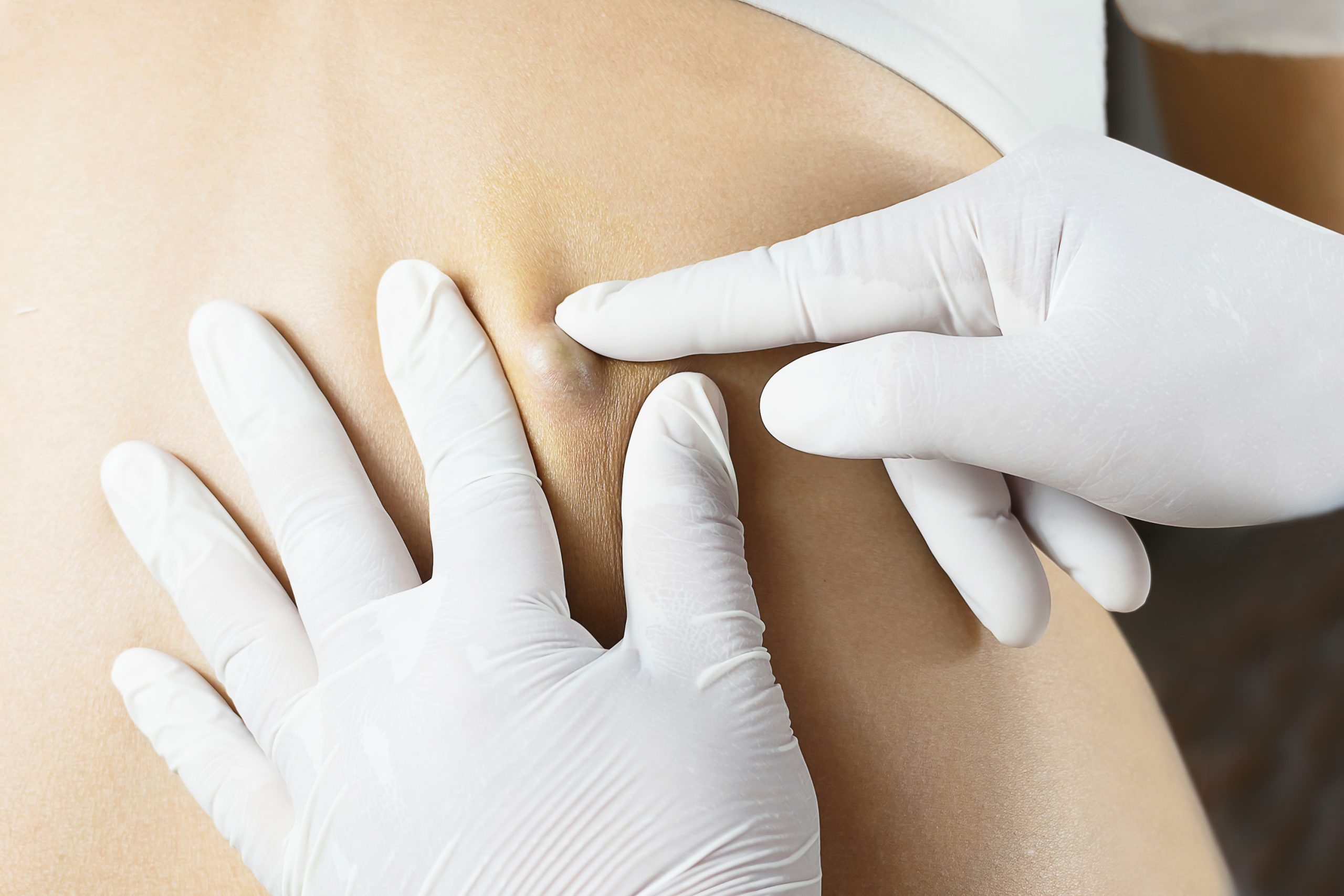Noticed a lump on your skin and wondering if it’s something to worry about? You’re not alone. Skin cysts are very common, often harmless, and sometimes go away on their own. However, others might need a trusted dermatologist’s attention.
Today, we’ll discuss what causes cysts and how to know if you need to seek a professional’s help for treatment.
Know Your Skin: What Is a Skin Cyst?
A skin cyst is a closed sac under the skin filled with fluid, pus, or other material. These bumps can show up anywhere on the body and vary in size. Most cysts don’t hurt, but if they get infected or inflamed, they can become uncomfortable.
While the word “cyst” might sound serious, most of them aren’t dangerous. Cysts can form due to blocked glands, minor skin injuries, or even genetics. They’re more common in adults, but kids and teens can get them too.
Types of Cysts and Their Symptoms
There are different types of cyst symptoms, and knowing what type you have can help you decide what to do next.
- Epidermoid Cysts: The most common type, usually found on the face, neck, or back. They form when skin cells get trapped under the surface.
- Sebaceous Cysts: Often confused with epidermoid cysts, these develop when sebaceous glands (which produce skin oil) get blocked. They usually contain an oily, yellowish substance.
- Pilar Cysts: Usually found on the scalp, these cysts are filled with keratin, and they tend to run in families.
- Ganglion Cysts: Typically found near joints and tendons, especially on the wrist. These contain a thick, jelly-like fluid.
Most of the time, these cysts are just cosmetic concerns, but sometimes they can become irritated or infected.
Benign vs. Harmful Cysts: When Should You See a Dermatologist?
Not sure if you need to see a specialist? Here are some situations where you should consider it:
- The cyst is painful or infected.
- It keeps getting bigger.
- It’s in a sensitive area, like your face or genitals.
- It’s affecting your confidence or daily life.
A dermatologist can diagnose the cyst and suggest the best treatment, whether that’s leaving it alone, draining it, or removing it completely.
Do Cysts Go Away on Their Own?
Some cysts shrink over time, but many stick around. If a cyst isn’t bothering you, you can probably leave it alone. But if it’s inflamed, growing, or uncomfortable, removal may be the best option.
Treatment Options for Skin Cysts
If a cyst becomes painful or infected, there are several ways to treat it:
- Draining It—A specialist can make a small incision and drain the cyst’s contents. This provides relief but doesn’t always prevent it from coming back.
- Surgical Removal—If a cyst keeps returning or is causing discomfort, the best way to prevent it from recurring is to remove it completely.
- Antibiotics—If a cyst gets infected, antibiotics can help clear up the infection, but they won’t remove the cyst itself.
What to Expect If You Need a Cyst Removed
If your healthcare provider recommends removal, the procedure is usually quick and easy. Here’s what typically happens:
- The specialist will numb the area with a local anesthetic.
- They make a small incision and remove the cyst.
- They close the wound with stitches if needed.
- You’ll receive aftercare instructions to prevent infection and promote healing.
Recovery is usually simple, with minor discomfort for a few days.
Frequently Asked Questions About Skin Cysts
Are skin cysts contagious?
No, skin cysts are not contagious. They are caused by internal factors such as blocked glands, genetics, or injury, not by bacteria or viruses that can spread from person to person.
Can I pop a skin cyst at home?
It’s best not to pop a cyst yourself. Doing so can lead to infection, scarring, or cause the cyst to return. Always consult with a dermatologist before attempting any treatment.
How can I tell if a cyst is infected?
Signs of infection include redness, warmth, swelling, tenderness, and pus drainage. If you notice these symptoms, contact a dermatologist promptly for evaluation and treatment.
Do cysts always need to be removed?
Not always. If the cyst is small, not painful, and not growing, it can usually be left alone. However, if it’s bothering you or getting worse, we recommend seeking treatment.
Will my cyst come back after treatment?
If the entire cyst sac isn’t removed, there’s a chance it could return. Surgical removal offers the best chance of preventing recurrence.
Finding Expert Dermatology Care for Cysts in Frisco, TX
If you’re in the Frisco, TX area and dealing with an annoying skin cyst, Rodgers Dermatology can help. We provide diagnosis, treatment, and removal of all kinds of cysts our patients encounter.
When you’re unsure about a cyst or ready to have it checked, schedule an appointment with Rodgers Dermatology in Prosper & Frisco, TX. A quick consultation can give you peace of mind and help you decide how to proceed.
Professional Care for Cysts in Prosper & Frisco, TX– Book an Appointment with Rodgers Dermatology!
If a concerning cyst has appeared, don’t wait and wonder if it’s benign or not—Rodgers Dermatology is here to assist. Our expert team can evaluate your cyst, provide the right treatment options, and restore your confidence.
Schedule your appointment today by calling 972-704-2400 to get rid of that cyst for good!

